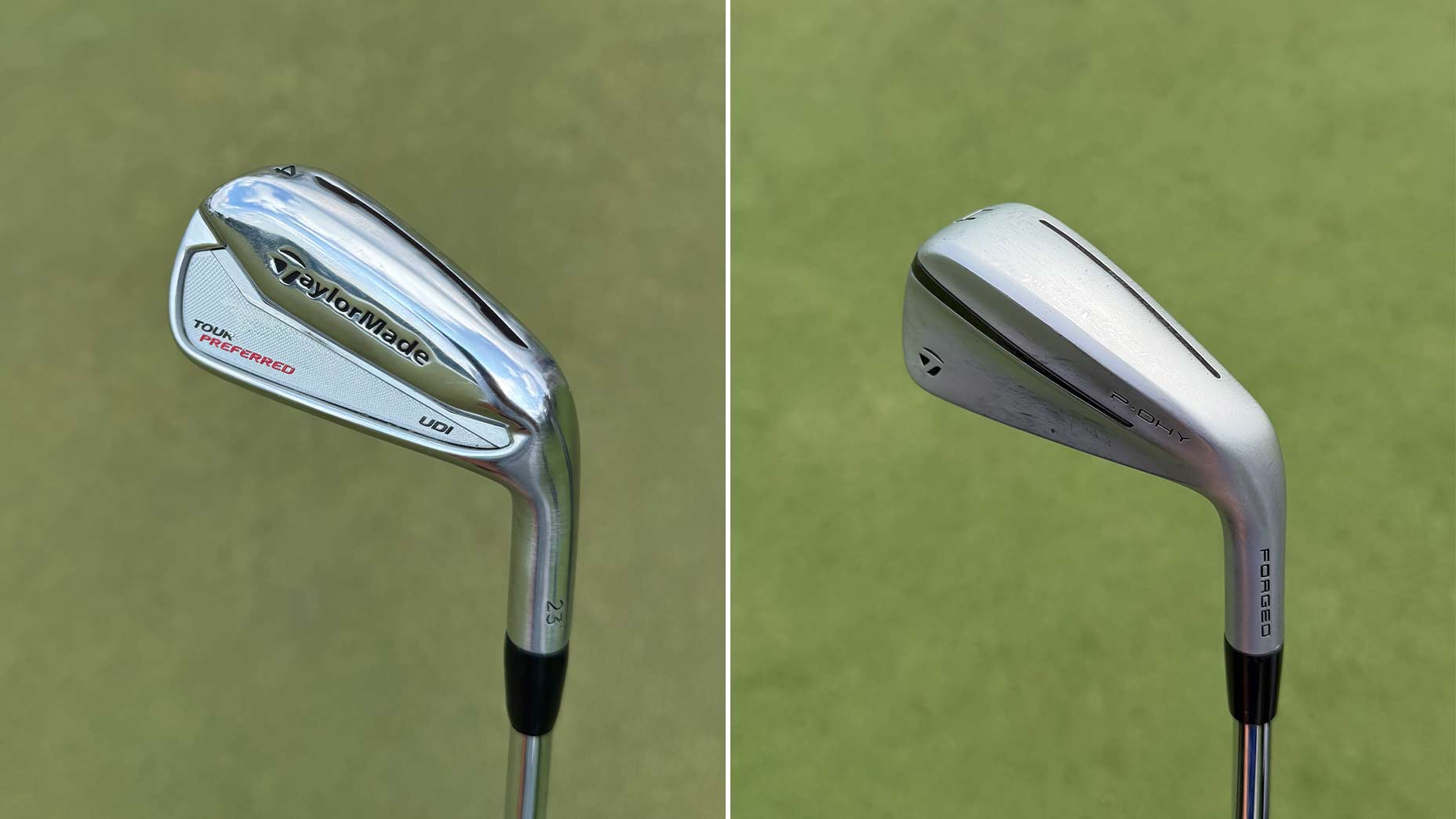Welcome to another edition of Yo, Gear Guy!, an interactive GOLF.com series in which our resident dimplehead (a.k.a., GOLF’s deputy editor of equipment, Mike Chwasky) fields your hard-hitting questions about clubs, fittings, gadgets, bounce, lofts, CG, MOI, and a bunch of other scary acronyms. This week he’s discussing the relationship between driver shaft length and distance, as well as the benefits of club fitting.
Got a question for Gear Guy? Hit us up on Twitter, Facebook or email.
Tommy_2Times: I’ve read that low torque, stiffer shafts are better for straight shots, but they don’t feel right to me. Why is this?
Torque as it applies to a golf shaft refers to rotation during the swing, while stiffness refers to overall flex. Understandably, if a player is capable of loading and unloading a stiff, lower-torque shaft (like a Tour player does) then that’s great as both the rotation and flex are more controllable.
However, if you don’t have a fast swing speed or a lot of load during your swing then a shaft with minimal rotation and flex won’t allow you to hit the ball very far and will take a lot of effort to swing.
So while you might hit the ball very straight, you’ll also hit it very short. For moderate and slower swingers, both torque and flex can actually be helpful because they allow the shaft to do more of the work through the swing and put less strain on your body. For your reference, a typical steel shaft has about one-degree of torque while the typical recreational player’s graphite shaft often has three- or four-degrees of torque.
My advice – get fitted for your shafts and go with what works the best, not what the pros or your buddies use.
Otter_E: Do I have to play a 45″ driver or longer to maximize my distance off the tee? They seem very long to me.
While some clubfitters might argue that it’s best to maximize your clubhead speed with a “standard length” shaft, which these days is typically 45″ or 45.5″, my answer to your question is definitely “no.” In fact, I think you can make a very good argument that shaft length on any club, including the driver, should be determined by what allows you to make solid contact most consistently.

Obviously there is some give and take when it comes to driver length and you probably won’t do yourself much good to go with an excessively short driver (43″ or less), but 45″ or more is a lot of length to handle for some players.

The other issue with modern-length driver shafts that a lot of folks don’t talk about is how much stress an overly long driver shaft can put on your body during the swing. I remember many years ago when I played my first round with an oversized driver with a 45.5″ shaft at a major manufacturer’s outing at the PGA Merchandise Show in Orlando and afterwards experienced neck soreness that I’d never felt before. I didn’t know it at the time but the length of the club caused the mild injury I was experiencing that unfortunately became somewhat chronic over the years. The other thing that happened was that, though I hit a few bombs off the tee, my dispersion on slight misses became much worse because though my swing speed was higher my contact was much less consistent.
The point of all this is that you definitely do not need a 45″+ driver to achieve your best all-around results – experiment with 44.5″ or 44″ lengths on a launch monitor and see if your quality of contact makes up for a little less speed, and also if the shorter length is more comfortable for you. If you’ve ever wondered why it often seems easier to hit a 3-wood off the tee than a driver, which is the case for many recreational players, a big part of the reason is the shorter length shaft.
Robb_Bstein: You always push club fitting but some of my friends seem to play worse when they get fitted clubs. What gives?
I’ve been over this before, more times than I can count actually, but we can do it one more time. Admittedly, some players do seem to struggle a bit with their newly fitted clubs, and it’s absolutely NOT because fitting is a con job or that it’s too mysterious to get right.
The reality is club fitting is part art and part science, and not everyone who calls himself a club fitter is truly qualified or serious about their job. Just like a tailor you find by chance who returns your shirt or jacket with two different length sleeves, some club fitters just aren’t that great at what they do. Also, the fitting part of club fitting is only part of the equation – you need the clubs to be built accurately to spec if you want them to perform like the one in the fitting bay, otherwise the whole process is a waste of time.
The easy solution is to find a qualified fitter that’s been vetted by people you trust (in this case I’ll promise you True Spec will do the job as well as it can be done – they built my clubs and I’m pretty discerning). The other thing to keep in mind when considering the value of fitted golf clubs is how “average,” you are in terms of body and swing type. The OEMs (major golf club manufacturers) spend a great deal of time making sure their clubs work for the “average” player very well, sort of the way clothing manufacturers do what they can to ensure an off-the-rack suit fits the “average” person. Anyone who has experience with bespoke clothing or at least well-fitted items knows there’s absolutely no comparison between the two. However, there are some folks who happen to “fit” the average mold fairly well, and also those who just don’t notice the differences that much.
If you don’t really care about getting the most out of your clubs then off-the-rack isn’t a bad option by any means. However, if you want to optimize your investment in new sticks then getting them properly fitted (and built) is a must.







